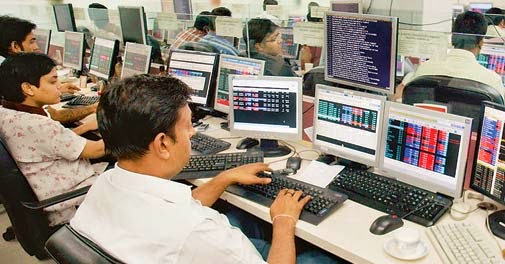Gold prices eased slightly in Asian trade on Friday, retracing overnight gains in the U.S. after the European Central Bank left monetary policy unchanged and sparked demand for the single currency, which came at the greenback's expense.
Crude oil prices gained in Asia on Friday as the markets shrugged off bearish factors such as ample U.S. supplies and looked ahead to prospects of renewed flareups in the Ukraine over a referendum on the sovereignty of the Crimean peninsula
As the hip-hop duo Outcast once supposed, You can plan a pretty picnic, but you cant predict the weather. Big Boi and Andre 3000 couldve been describing the commodity markets so far this year.

From drought in Brazil to the arctic blast that swept across North America uttermost weather condition drove coffee, sugar and natural gas into bull markets even as escalating political tension in Ukraine created supply risks for energy and grains. The rally for raw materials was a surprise to banks from Citigroup Inc. to Goldman Sachs Group Inc. that had forecast 2014 would mark a continuance of last years slump.xEOL.xBL.Commodity funds recorded inflows of $ 1.57 billion last month, the first increase since September, after withdrawals last year reached a record $ 43.3 billion, according to researcher EPFR Global. Investors who shunned gold as the metal slumped into a bear market in 2013 increased holdings through exchange-traded funds in February for the first time | first} since 2012. Dryness in Brazil erased the prospect of a record coffee crop as prices jumped, after the longest slide in two decades.
Its a series of mostly unrelated factors that are catching commodities at once when they've already been heavily sold, said Paul Christopher, the St. Louis-based chief international strategist at Wells Fargo Qualified personnel, which manages $ 1.4 trillion. A lot of these factors are weather condition related and will fade. I dont think this is a viable opportunity for a long term investor. Its more of a trading opportunity.. xBL .2014 Gains.
The Standard & Poors GSCI Spot Index (BUSY) of 24 commodities climbed 3.1 percent this year, led by an 77 percent surge for coffee and gains for hogs, corn and gold. The MSCI All-Country World Index of equities rose 1.1 percent, and the Bloomberg Dollar Spot Index, a gauge against 10 major trading partners, slid 0.6 percent. The Bloomberg U.S. Treasury Bond Index rose 1.6 percent.
The GSCI index fell 2.2 percent last year, the first decline since the global recession in 2008, as a decade of higher prices spurred producers to build new mines, drill more wells and expand crop planting. Increased supply combined with slowing growth in China, the biggest user of everything from soybeans to zinc and cotton, prompted New York-based Goldman and Citigroup to declare an end to the commodity super cycle that caused raw materials to almost quadruple since 2001.
While many investors threw in the towel after last years slump, they shouldnt give up on commodities, said Michael Aronstein, who correctly predicted the plunge in raw materials in 2008 and the 2009 rebound.
Global Expansion.xEOL.xBL.Commodities will just be normal cyclical participants in an accelerating expansion globally, said Aronstein, the president and chief investment officer of Marketfield Asset Management LLC in New York. You're returning to local supply-demand functions in commodities. Aronstein said he started buying commodity-related equities at the end of 2013.
The U.S. economy will grow 2.9 percent this year, accelerating from 1.9 percent in 2013, a Bloomberg survey shows. The euro area will expand by 1.1 percent after a contraction of 0.5 percent last year. Eighteen of the 24 commodities in the GSCI index climbed in 2014, and 10 of them have posted gains of 10 percent or more.
Its been a year full of surprises, without doubt about that, said David Rosenberg, the Toronto-based chief economist at Gluskin Sheff & Associates, which manages about $ 6.8 billion. There is a time-worn relationship between overall global growth and the commodity complex. Between what the U.S. is going to do this year and what Europe is going to do, global growth is going to be accelerating..
Coffee, Crude.
Arabica coffee, the bean variety favored by Starbucks Corp., reached a two year high this week amid the driest summer since 1972 for Brazil, the biggest grower. Crude oil jumped to the highest since September, reaching $ 105.22 a barrel in New York on March 3 as tensions escalated between Ukraine and Russia, the biggest energy exporter. Unusually frigid weather condition in the U.S. boosted demand for heating fuel, while supplies of natural gas and coal will decline to six-year lows by the end of this month, government data show.
The supply-and-demand outlook for individual commodities, rather than macroeconomics, is now driving prices, said Michael Haigh, the head of commodities research at Societe Generale SA in New York. Raw materials dont have much more downside because prices are near the cost of production, while the outlook for slowing growth in China and emerging markets generally has already been factored in, he said.
More Neutral.
Citigroup has turned more neutral, though the bank still isnt bullish, said Aakash Doshi, a vice president of Citigroup Global Markets Inc. in New York. Geopolitical risk and weather condition spurred this years rally, and increased supplies will mean prices probably will dec.









